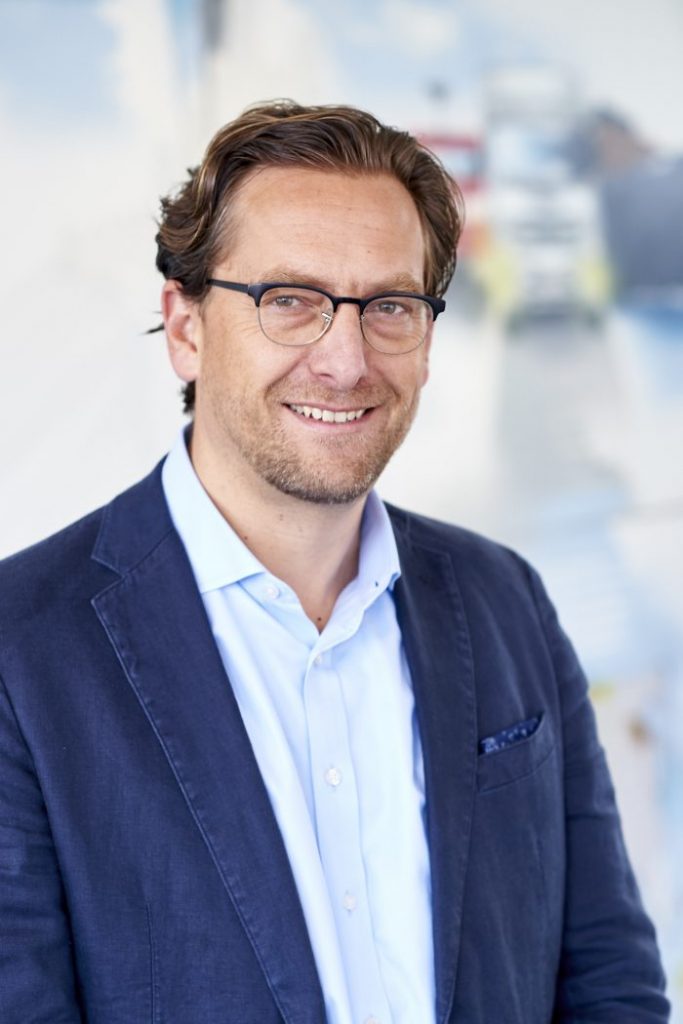Every German receives 24 parcels per year – that is more than any other European. More and more frequently, the goods originate from outside of Europe as well. Logistics is benefiting from the continuing upswing, yet it is also facing major challenges in view of global supply chains and customers’ desire for green solutions. We spoke with Stephan Schiller, CEO of Hermes International, a division of Hermes Germany, about the conflict area between Lot Size 1 and Green Logistics, successful cross-border logistics and the company’s plans for 2020.
Mr. Schiller, through the cooperation with SEKO Logistics you were able to further strengthen your profile as a competent partner in the areas of cross-border e-commerce, SCM and consumer logistics last year. What is your focus in 2020? What are your plans and goals?
A year with many changes is behind us and a year full of changes lies ahead. Against this background, the focus is clearly on ensuring our ability to adapt to the needs and wishes of our target customers.
Through our close partnership with SEKO, we have indeed significantly strengthened our global footprint, and this will need to be scaled up in 2020. In the area of supply chain management, we have set out to achieve even more controlled growth with our target customers. New technologies will increasingly be used in this context. We consider ourselves well positioned in these areas and are looking forward to the tasks that lie ahead.
Companies are faced with a growing pressure to optimize their supply chain. At the same time, however, supply chains are becoming increasingly complex. How can companies prepare for the growing challenges and successfully master them?

There is no standard answer to this question. From my perspective, clear trends can be recognized: Customers increasingly want to be informed about the status of their goods on a so-called ‘near real time’ basis. Data and the active use of this information are playing an increasingly important role in this context. It is not only a question of keeping an eye on the status quo, but also of making more precise forecasts, for example regarding optimizing storage capacities – something that is of increasing interest to companies.
We also see great potential in advising our clients on customs procedures and regulations. In times of trade restrictions and “Brexit”, detailed know-how is clearly becoming more important. This applies to both classic freight and cross-border parcel issues.
Furthermore, a younger generation of decision-makers is currently assuming responsibility in important areas of the supply chain. They want to interact with logistics experts in a different framework. New technologies are playing an increasingly important role here as well.
With the growing popularity of online marketplaces, more and more companies are internationalizing their business. In this context, which variables are decisive for the success of efficient cross-border logistics? How does Hermes International support its customers?
We have opted for a modular approach. This means that we offer our customers a complete supply chain solution or individual cross-border parcel routes, analogously to the individual process steps. Thus, customers do not necessarily need to have their parcels picked up, flown, cleared through customs, transported, sorted and delivered by us – we put together individual solutions for our clients.
This modular approach gives us the opportunity to support different customers: starting with the manufacturer, via the retailer or platform, and up to the consolidator and the logistics provider.
Thanks to the Fridays for Future movement, “green topics” are currently gaining importance. Yet how does the demand for ever smaller batch sizes, down to lot size 1, and the desire for green logistics fit together? What solutions does Hermes International pursue in order to minimize these tensions?
Not only are we a member of the Clean Cargo Working Group, which has the goal of reducing the environmental impact of container shipping, but as a member of the Otto Group, this issue has been a matter close to our hearts for years. Together with the Otto Group’s retailers, for example, we have proportionally reduced the volume of CO2 in procurement logistics by almost 50% since 2006. We can automatically measure CO2 emissions at the level of individual items in order to create the necessary transparency in the first step. Yet we are only at the beginning of a necessary process, which is not entirely without contradiction between our own consumption demands and what is being expected of modern logistics.
Last year you viewed the separation tendencies of some national economies with concern. Brexit, which has long been a very uncertain matter, was a much discussed topic in the industry. What challenges do you see coming up in the new year?
Unfortunately, these tendencies have not changed. Meanwhile, Brexit is now as good as certain and the global outlook also remains challenging.
I hope that sustainable management will continue to be in the focus, but I am concerned that this discussion is increasingly taking place in a restricted manner. We at Hermes International have been addressing this issue for a long time. However, I do not think we can do it alone: all the stakeholders involved are called upon to make a joint contribution: starting with the consumer, through the producer and on to the logistics provider.
Mr Schiller, thank you very much for the interview. We wish you all the best for the year 2020.

